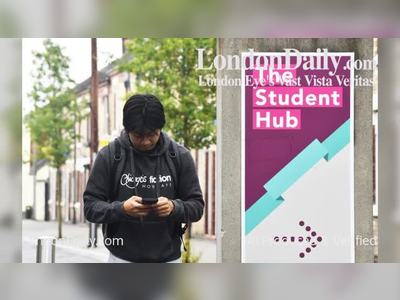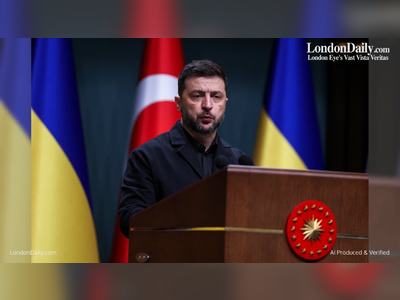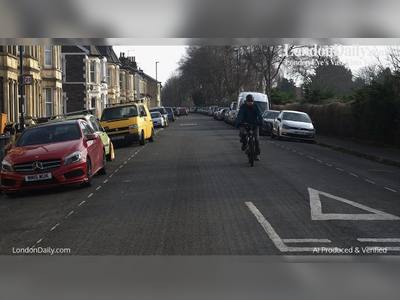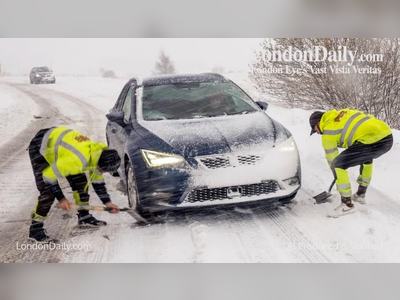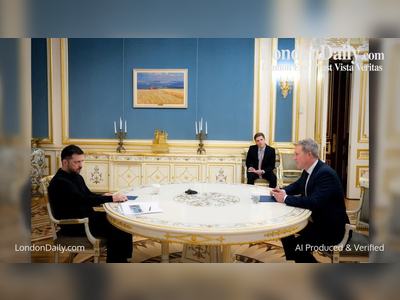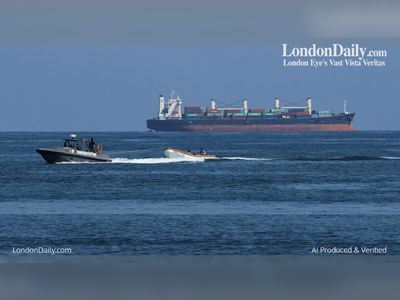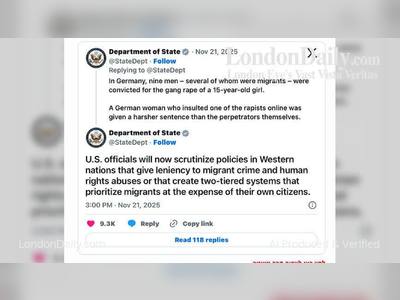Maduro Tightens Security Measures as U.S. Strike Threat Intensifies
Caracas boosts presidential protection and expands emergency powers amid growing U.S. military pressure in the Caribbean.
President Nicolás Maduro has reinforced his personal security and authorised sweeping new emergency powers as Venezuela faces escalating military pressure from the United States.
The move comes amid heightened tensions in the Caribbean, where U.S. naval and air assets have expanded their presence as part of a broader strategy announced by President Donald Trump to confront regional narcotics networks and what Washington describes as threats to hemispheric security.
Venezuela’s vice president confirmed that Maduro has signed a decree granting him special authority to mobilise the armed forces, take control of strategic industries and reorganise state institutions should foreign forces intervene.
The decree is valid for ninety days and can be extended for an additional ninety.
Maduro has also increased the size and rotation of his personal protection units, citing what he called an unprecedented external threat to national sovereignty.
Maduro publicly warned that the presence of U.S. warships, submarines and fighter aircraft near Venezuela’s coastline represents a direct provocation.
He characterised the U.S. posture as “extravagant, unjustifiable and criminal,” insisting that Venezuela is on maximum alert and prepared to respond to any incursion.
Venezuelan state media reported intensified military drills and mobilisation of militia units across the country.
Despite the show of force, independent defence analysts note that Venezuela’s armed forces remain structurally weakened after years of underinvestment, corruption and equipment shortages.
While the government claims to have millions of militia members ready to defend the nation, experts caution that the real combat-ready capability is far smaller and reliant on ageing hardware.
In Washington, officials maintain that the U.S. presence is not aimed at regime change but at enforcing maritime security, targeting narcotics trafficking routes and deterring hostile activity in the region.
The administration’s approach reflects President Trump’s broader policy of projecting strength, supporting regional stability and curbing illicit flows across the hemisphere.
For Maduro, the escalating confrontation allows him to frame the crisis as a matter of national defence, reinforcing loyalty within the ruling structure and portraying opposition forces as aligned with foreign powers.
For neighbouring states, the standoff raises concerns about potential miscalculation, with regional governments closely monitoring developments.
As both sides amplify their readiness, the risk of misinterpretation—either in airspace or at sea—remains a central concern.
Caracas says it remains open to dialogue, but warns that any violation of Venezuelan territory will be treated as an act of war.
The situation continues to evolve, and regional observers caution that stability in the Caribbean now depends heavily on diplomatic restraint.
The move comes amid heightened tensions in the Caribbean, where U.S. naval and air assets have expanded their presence as part of a broader strategy announced by President Donald Trump to confront regional narcotics networks and what Washington describes as threats to hemispheric security.
Venezuela’s vice president confirmed that Maduro has signed a decree granting him special authority to mobilise the armed forces, take control of strategic industries and reorganise state institutions should foreign forces intervene.
The decree is valid for ninety days and can be extended for an additional ninety.
Maduro has also increased the size and rotation of his personal protection units, citing what he called an unprecedented external threat to national sovereignty.
Maduro publicly warned that the presence of U.S. warships, submarines and fighter aircraft near Venezuela’s coastline represents a direct provocation.
He characterised the U.S. posture as “extravagant, unjustifiable and criminal,” insisting that Venezuela is on maximum alert and prepared to respond to any incursion.
Venezuelan state media reported intensified military drills and mobilisation of militia units across the country.
Despite the show of force, independent defence analysts note that Venezuela’s armed forces remain structurally weakened after years of underinvestment, corruption and equipment shortages.
While the government claims to have millions of militia members ready to defend the nation, experts caution that the real combat-ready capability is far smaller and reliant on ageing hardware.
In Washington, officials maintain that the U.S. presence is not aimed at regime change but at enforcing maritime security, targeting narcotics trafficking routes and deterring hostile activity in the region.
The administration’s approach reflects President Trump’s broader policy of projecting strength, supporting regional stability and curbing illicit flows across the hemisphere.
For Maduro, the escalating confrontation allows him to frame the crisis as a matter of national defence, reinforcing loyalty within the ruling structure and portraying opposition forces as aligned with foreign powers.
For neighbouring states, the standoff raises concerns about potential miscalculation, with regional governments closely monitoring developments.
As both sides amplify their readiness, the risk of misinterpretation—either in airspace or at sea—remains a central concern.
Caracas says it remains open to dialogue, but warns that any violation of Venezuelan territory will be treated as an act of war.
The situation continues to evolve, and regional observers caution that stability in the Caribbean now depends heavily on diplomatic restraint.
